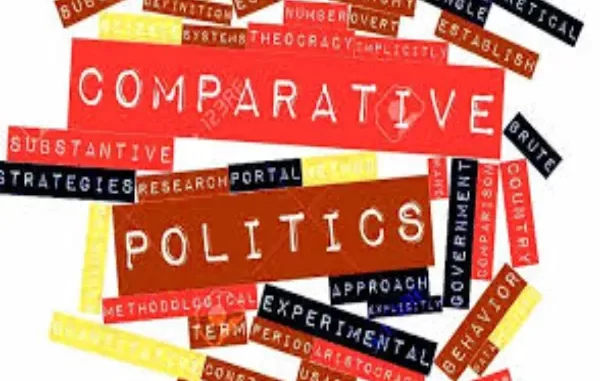
Comparative politics is a field of political science that studies the internal and external dynamics of political systems. It seeks to understand the similarities and differences between different political systems in order to explain why certain governments are more successful than others.
It is particularly interested in the principles of democracy and democratization, which refer to the process of transitioning from an authoritarian or non-democratic system to a system based on the principles of democracy.
These principles include the protection of fundamental human rights, the establishment of a representative government that is elected by the people, and the implementation of fair and impartial institutions that uphold the rule of law.
The Link Between Principles of Democracy and Democratization
The world has seen a dramatic shift in the principles of democracy in the last few decades, and this shift has been accompanied by a corresponding democratization of many countries. There is an important link between the two phenomena, as democracy is essential for successful democratization.
In order to understand the link between principles of democracy and democratization, it is important to first define both concepts. Democracy is a system of government in which all citizens are equal and have the right to participate in making decisions that affect the country. Democratization is the process of making a country more democratic, either through internal reform or through external pressure.
The principles of democracy that are essential for successful democratization include the rule of law, the protection of civil liberties, free and fair elections, as well as the separation of powers. These principles are essential for ensuring that citizens have the ability to make their voices heard and that their rights are respected.
Ultimately, the principles of democracy are essential for successful democratization. Without these principles, citizens may not be able to rely on the government to protect their rights or to ensure free and fair elections.
The Impact of Democratic Principles on the Democratization Process
The process of democratization is a complex one, and its success depends on many factors, including the impact of democratic principles. Democratic principles, such as the rule of law, freedom of speech, open elections, the protection of minority rights, and an independent judiciary, provide the foundation for a successful democratization process.
The rule of law is perhaps the most important of all the democratic principles. It ensures that all citizens, regardless of economic or social standing, are treated equally under the law. Without the rule of law, the democratization process is likely to fail as citizens will be unable to trust the legal system.
The protection of minority rights is also essential for the successful democratization process. Without the protection of minority rights, minorities are likely to be marginalized and excluded from the political process. This can lead to social unrest and political instability, which can ultimately derail the democratization process.

Overall, democratic principles play an essential role in the successful democratization process. Without the rule of law, freedom of speech, open and free elections, the protection of minority rights, and an independent judiciary, it is unlikely that a country will be able to successfully democratize.
The Role of Citizen Participation in Establishing Democratic Principles
Citizen participation is a crucial element of democracy, as it is essential for establishing democratic principles. The ability of citizens to participate in decision-making processes serves to ensure that the will of the people is represented in government and that citizens have a say in their own governance. In democratic processes, it is vital to ensure that citizens are given the opportunity to influence the decisions that affect their lives and that their voices are heard.
It can take many forms, such as voting in elections, attending public hearings, and attending protests. Participating in elections is one of the most direct forms of participation because it allows citizens to select their representatives, who will then make decisions on their behalf. Additionally, attending public hearings allows citizens to make their voices heard and inform their elected officials of their opinions on specific issues.

Furthermore, citizen participation can take place outside of formal electoral and political processes. For example, citizens can join civic or advocacy organizations, which provide an opportunity to engage in public discourse and participate in political action. Additionally, citizens can write letters to their representatives, sign petitions, and engage in other forms of activism to advocate for specific issues.
The Role of Political Culture in Shaping Democratic Principles
Political culture is the set of beliefs, values, and norms that shape how individuals, groups, and societies interact with respect to the government and political system. It is the foundation of a nation’s political system and can have a profound influence on the development of democratic principles.
Political culture can be divided into four distinct types: individualist, communitarian, traditional, and secular. Individualist cultures emphasize individual rights, personal freedom, and the rule of law. Each type of political culture can have a significant impact on the development of democratic principles. In individualist cultures, emphasis is placed on personal autonomy, individual rights, and the protection of civil liberties.
In communitarian cultures, the emphasis is on collective decision-making and the collective good. This type of culture is conducive to the development of democratic principles such as the rule of law, political representation, and the right to participate in the public sphere.
In traditional cultures, the emphasis is on the past and on loyalty to family, tradition, and religious beliefs. This type of culture can be conducive to the development of democratic principles such as respect for authority, a belief in the sanctity of life, and respect for tradition.
Finally, in secular cultures, the emphasis is on the separation of religion and politics. This type of culture is conducive to the development of democratic principles such as freedom of conscience, the right to dissent, and the pursuit of knowledge.
The Impact of International Norms on Promoting Democratic Principles and Democratization

International norms are important for promoting democratic principles and democratization around the world. By setting standards of behavior and creating a shared understanding of what is expected of nations, these norms can help shape the actions of countries, both in their domestic and international policies.
This document established a set of fundamental rights and freedoms that all people are entitled to and which all states must uphold. As a result, states are held to a higher standard and must ensure that their citizens enjoy these rights. This helps to ensure that human rights are respected and protected, regardless of a nation’s system of government.
Furthermore, international norms can provide a framework for countries to peacefully resolve conflicts. By setting expectations for how states should interact, norms can create an environment where disagreements can be addressed without resorting to violence.
The principles of democracy and democratization are fundamental to comparative politics. They provide a framework for understanding the development of democracy in different countries, as well as the dynamics of democratization and its effects on political systems.
Although the definition of democracy and democratization vary from country to country, they are essential for the advancement of democratic values and practices in all parts of the world. Democracy and democratization are essential for the development of a healthy and equitable political system and for the protection of human rights in all societies.

Leave a Reply